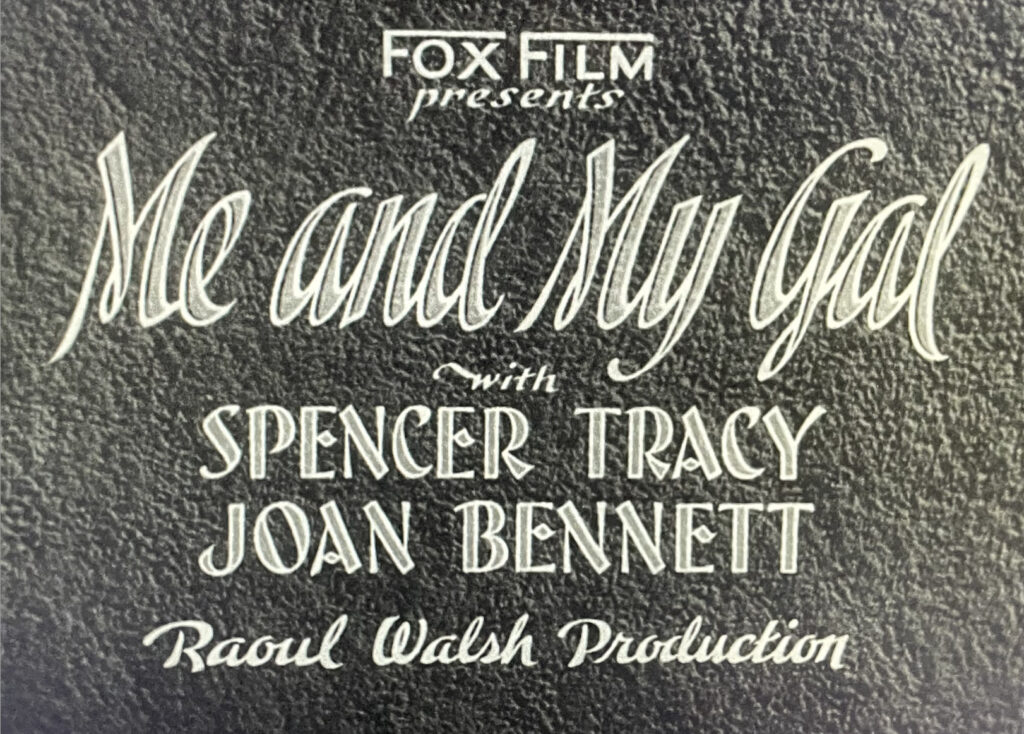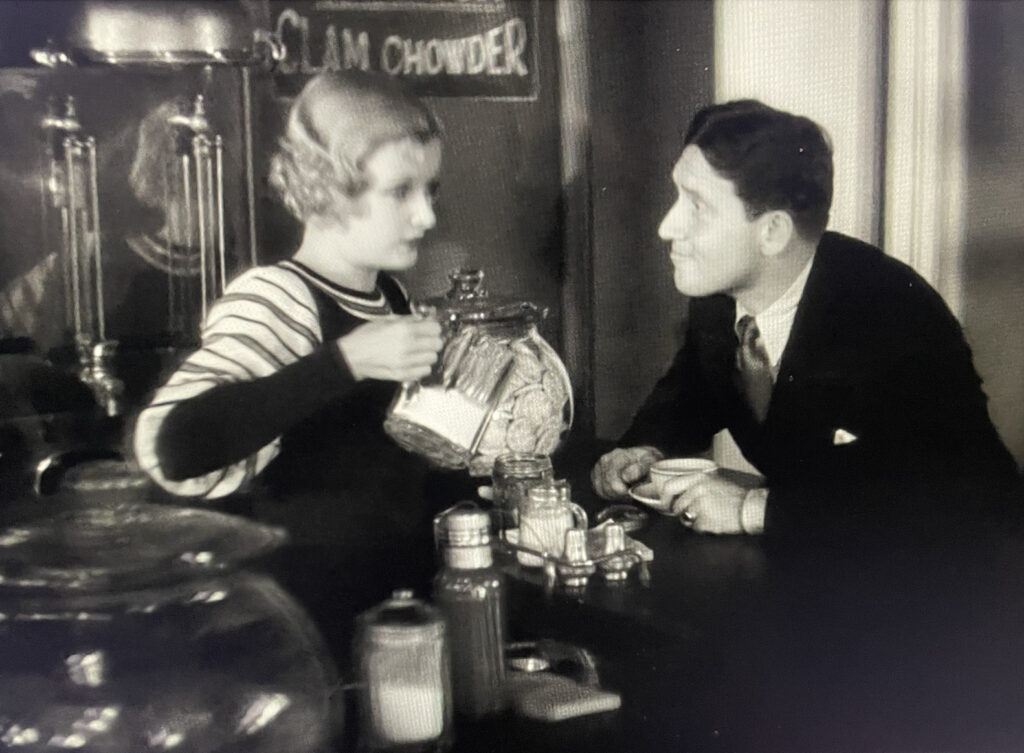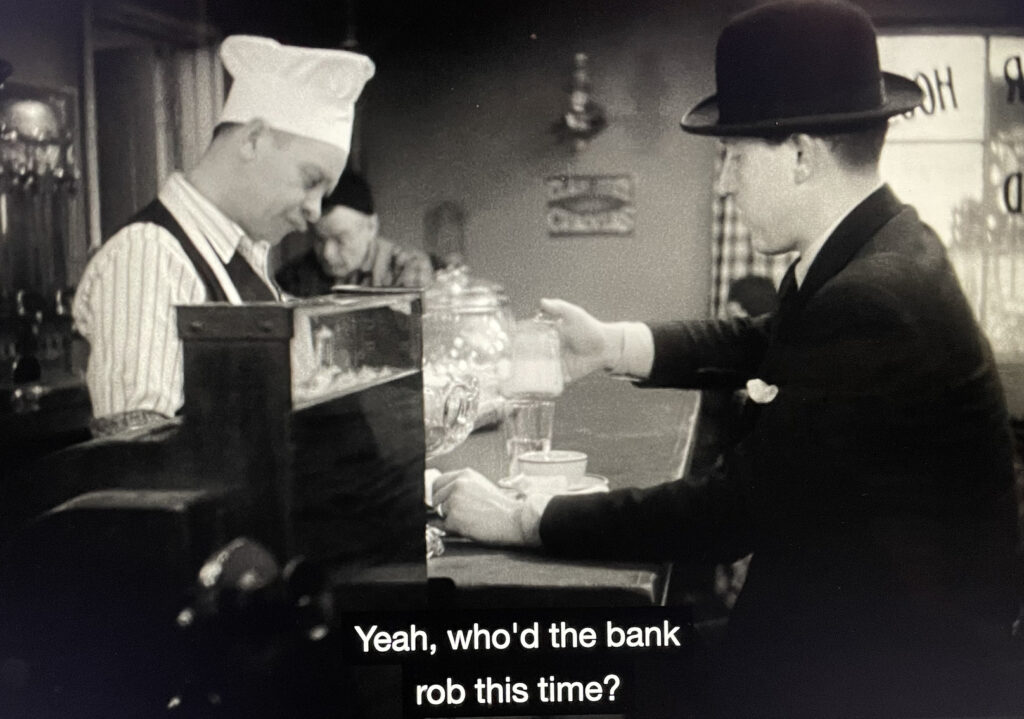Executive summary: this is an interesting pre-Hays-Code comedy/melodrama that’s worth watching at least once.
Spencer Tracy and Joan Bennett star in this fast-moving but minor movie, directed by Raoul Walsh in 19 days and written by at least seven people (and it shows).
Tracy plays a cop named Danny Dolan who works the waterfront where he runs into a bunch of crazy characters including a guy who’s getting ready to drown his dog because he can’t feed him, and a waitress with a smart mouth and a heart of gold. He saves the dog, romances the waitress, catches a crook and gets promoted to detective. That happens in about 10 minutes of screen time, and I’m leaving out most of the wacky characters who come and go without an impact on the plot.
The waitress, Helen Riley (played by Joan Bennett), has a sister, Kate, who’s also engaged marry to a cop, Sarge. They live with their father, Pop Riley, an ex-cop who’s almost completely paralyzed from an injury in the line of duty.
Everything is rosy in this monochrome landscape of working girls dating cops, except that there’s a snake in the gray grass: a murderous gangster, Duke Castanega, played in a sneering monotone by the director’s younger brother. Kate used to date him and is still in love with him, and when he’s on the run he comes to Kate and convinces her to hide him in the attic. So the police force are looking all over town for for a guy who’s hiding in the attic of a retired cop.
Pop the ex-cop is fully aware that the gangster is in his attic, but he can’t speak or write. When Helen and Danny stop by to visit with him, he tells them the whole story by blinking in Morse code. They don’t read Morse code, but they take down the message and decode it later. That sets up the climax of the plot where Helen saves her sister from charges of aiding-and-abetting and Danny, after being shot, kills Duke off-camera. The good and semi-good guys live happily ever after, and the ungood guys are dead.
This movie tends to confirm my theory that screwball comedy is the funhouse-mirror of noir. There are a lot of darker elements here that the Hays Code would have ruled out—the illicit affair of the cop’s fiancée and the gangster, for instance. Also, Danny kills the guy. From Duke’s point of view, this movie is a noir. From Danny’s, it’s a light-hearted comic romance with a little light danger.
The wacky dockside characters were sometimes tedious but always brief. The smart dialogue between Bennett’s character and Tracy’s wasn’t as smart as it thought it was, but the actors delivered the lines with style. I liked it that a disabled guy cracked the case and is treated throughout as a person, not a piece of furniture. And the depression-era cynicism about institutions was frostily refreshing. At one point, the counter guy at the diner tells Danny about a bank robbery, and Danny says, “Oh yeah? Who’d the bank rob?”
Lines like this probably brought the house down in 1932. Ninety years later, we’re much more sophisticated and we know that billionaires won’t harm us if we just tickle their egos in exactly the right way, and also surrender ownership of the world to them.



